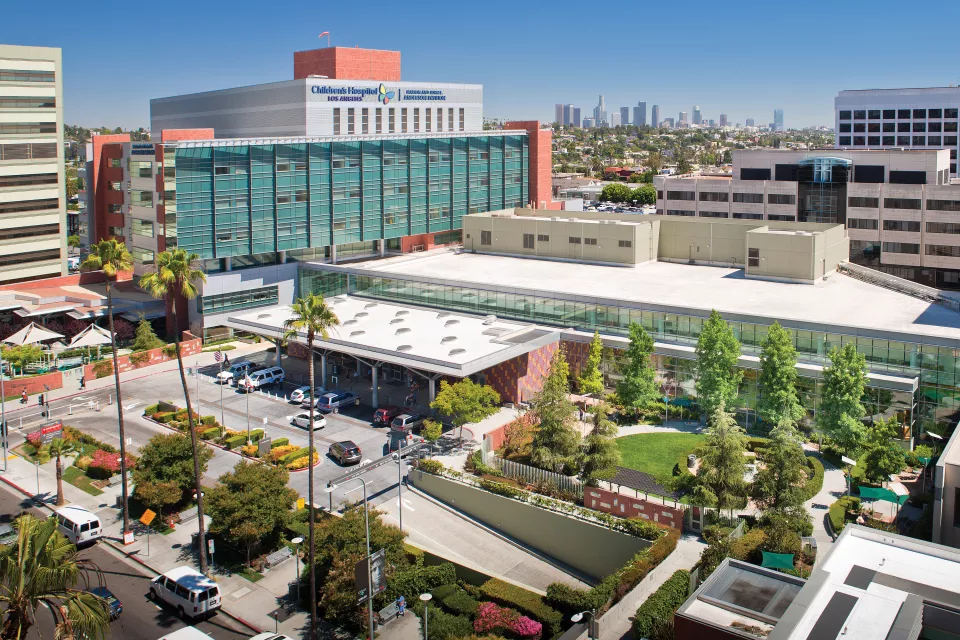Children's Hospital Los Angeles is one of 14 children’s hospitals across the nation designated by the Childhood Liver Disease Research Network (ChiLDReN). ChiLDReN is funded by the National Institutes of Health and represents the continuation of two previous NIH-funded consortia, the Biliary Atresia Research Consortium and the Cholestatic Liver Consortium.
Current Research Studies
We are currently enrolling infants and children for the following studies (participation is voluntary):
A Prospective Database of Infants with Cholestasis (PROBE)
- Infants less than 180 days of age with cholestasis defined by serum direct or conjugated bilirubin greater than or equal to 2 mg/dl. (study visits 1, 2, 3, 6, 12, 18 months, then annually)
Biliary Atresia Study in Infants and Children (BASIC)
- Infants and children 6 months of age and older with confirmed diagnosis of biliary atresia (annual study visit)
- Infants and children 6 months of age and older with confirmed diagnosis of BA who have been transplanted (1 study visit)
Longitudinal Study of Genetic Casues of Intrahepatic Cholestasis (LOGIC)
- Infants and children diagnosed with alpha-1-antitrypsin deficiency, Alagille syndrome, PFIC, and bile acid synthesis defects (annual study visit)
- Transplanted children with above diagnoses (1 study visit)
Longitudinal Study of Mitochondrial Hepatopathies (MITOHEP)
- Infants and children with confirmed or suspected mitochondrial hepatopathy (annual study visit)
Prospective Observational Study of Primary Sclerosing Cholangitis (PSC) in Children
- For children ages age 2 through 25 diagnosed with Primary Sclerosing Cholangitis (annual visit)
Industry Sponsored
BOLD
- New drug trial for babies immediately after Kasai
- Babies at Kasai or immediately after Kasai < 90 days of age at Kasai
Contact Information
Cat Goodhue
Research Coordinator
323-361-4566
cgoodhue@chla.usc.edu
Ongoing Studies
(Closed to new subjects)
Completed Studies
- A Randomized, Double-blinded, Placebo-controlled Trial of Corticosteroid Therapy Following Portoenterosotomy in Infants with Biliary Atresia (START)
- A Phase I/IIA Trial of Intravenous Immunoglobulin (IVIG) Therapy Following Portoenterostomy in Infants With Biliary Atresia (PRIME)
- The Evaluation of the Intestinal Bile Acid Transport (IBAT) Inhibitor LUM001 in the Reduction of Pruritus in Alagille Syndrome, a Cholestatic Liver Disease (ITCH)
- A Multicenter Extension Study to Evaluate the Long-Term Safety and Durability of the Therapeutic Effect of LUM001, an Apical Sodium-Dependent Bile Acid Transporter Inhibitor (ASBTI), in the Treatment of Cholestatic Liver Disease in Pediatric Subjects With Alagille Syndrome (IMAGINE-II)
- Open Label Study of the Efficacy and Long Term Safety of LUM001, an Apical Sodium-Dependent Bile Acid Transporter Inhibitor (ASBTi), in the Treatment of Cholestatic Liver Disease in Pediatric Patients With Progressive Familial Intrahepatic Cholestasis (INDIGO)
What Our Team Looks Like
Our participation in ChiLDReN represents a multidisciplinary effort that includes:
- Hepatologists and Gastroenterologists
- Pediatric surgeons
- Pathologists
- Radiologists
- Geneticists
- Pulmonologists
- Research investigators at The Saban Research Institute
Current Funding
Childhood Liver Disease Research Network (ChiLDReN)
2U01DK084538
National Institute of Digestive Disease and Kidney
National Institutes of Health
Principal investigator: Kasper Wang MD
Continuation of the Children’s Hospital LA ChiLDReN Liver Research Center
The major goals of this study are to continue developing the ChiLDReN research center at Children’s Hospital Los Angeles by: 1) enrolling patients with rare congenital liver diseases such as biliary atresia into studies established and conducted by 15 children’s hospitals nationally, 2) conducting network drug trials, 3) studying the role of hepatic progenitor/stem cells in the pathogenesis of biliary atresia, and 4) providing education and outreach to primary care providers, hepatologists and parents.
